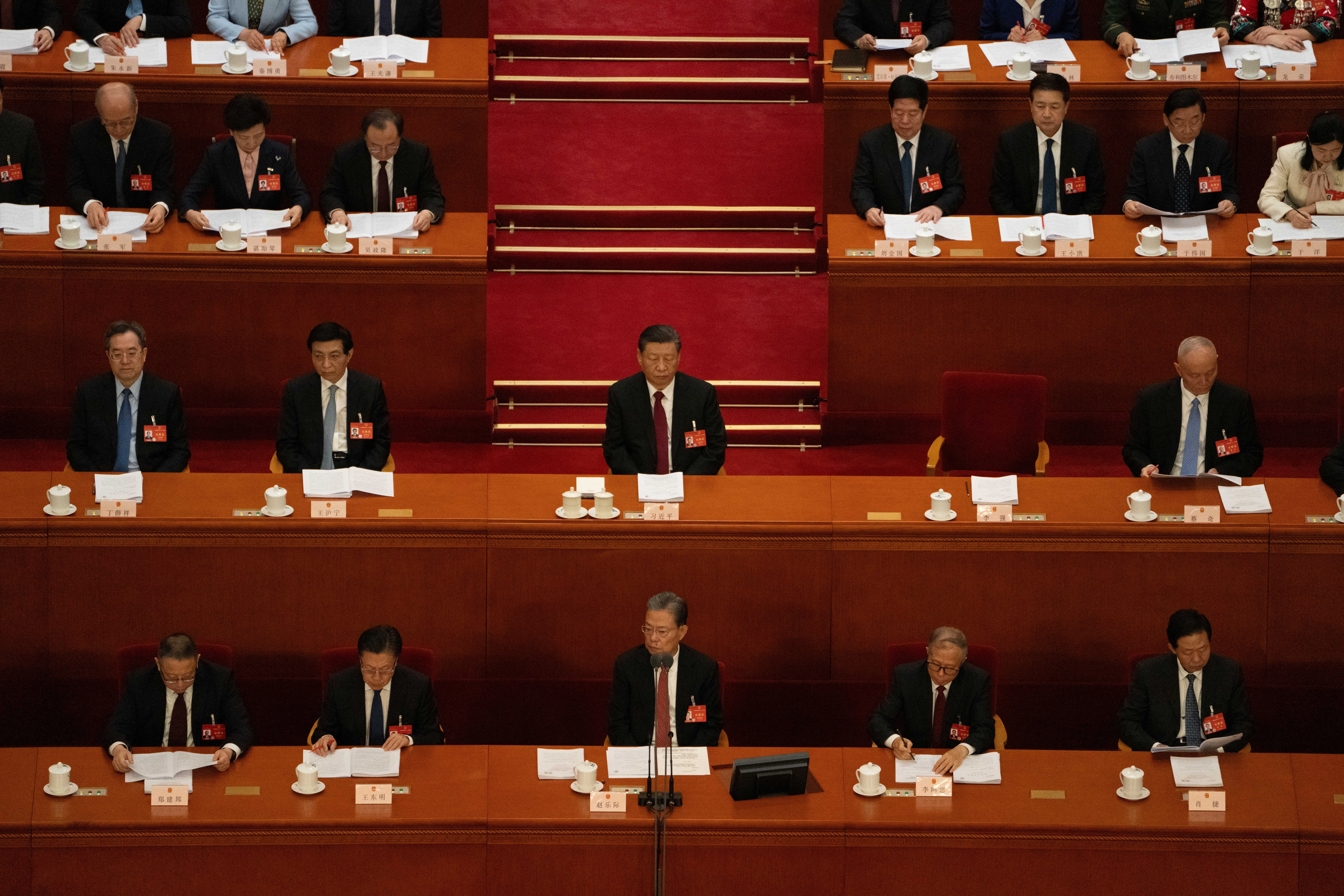Source >> Tempest
The mass uprising against French President Macron’s pension reforms – imposed with incredible hubris, without parliamentary authorization, and in the face of majority opposition – has been historic. There have been over a dozen national days of action and the union federations, acting in unity, have called for mobilizations in every city across the country. Given the undemocratic methods of the government, and brutality of the police, the actions of the Macron government, in trying to extend the retirement age, have called into question the basic legitimacy of the Macron government and the French state as a whole. Tempest interviews Sylvestre Jaffard, a member of the Nouveau Parti Anticapitaliste (NPA) about the dynamics.
Tempest:Can you describe the forces that have been mobilized in opposition since the pension announcement in late October? To what extent are the trade unions taking a leadership role? What impact does the opposition of Marine Le Pen to Macron’s policy have on the politics on the ground among the opposition?
Sylvestre Jaffard:The trade unions have been reinvigorated by the struggle against pension reforms. For the first time in decades there has been a united front of all trade unions against this reform. As a result they have been very much in the leadership, calling for twelve “days of action” (in effect calls for one day general strikes) between January and April, which were the occasion of massive demonstrations and substantial strikes. They have also called in a more vague manner for open-ended strikes, which were left to be organized at branch and local levels. There is a debate on the revolutionary Left at the moment whether this means the union leaderships have effectively stifled the movement by not calling clearly for an open-ended general strike, or whether they couldn’t go beyond what they have done, and a real general strike would have to depend on the self-organization of rank and file workers in any case. It is a fact that compared to previous comparable struggles, self-organization of strikes has been weak, though not completely absent. On a mass level it is clear the great majority of workers has put their trust in the union leaderships to direct the struggle, for better or worse.
It seemed at times the school and university students, who have been much more active in this movement than in previous ones over pensions, could provide another focus of activity. Heavy police repression has mainly managed to keep the student movement from boiling over so far, but it remains a volatile element which Macron particularly fears. Youth movements are more unpredictable and more difficult to deal with politically.
Le Pen has been positioning her Rassemblement National (National Rally) party as a “respectable opposition,” as distinct from the Left in parliament and in the streets. Among those striking and demonstrating there is little or no talk of the Rassemblement National as an alternative. The risk is that she may appear as a safe alternative to the more passive part of the population, those who are opposed to the reform, but want somebody else to do the job for them, those who remain supportive of the police and are more open to racist ideas.
However, the movement has meant that for the past three months the news agenda has been almost completely empty of the usual xenophobic and islamophobic rhetoric, and police brutality has become more discussed. This obviously doesn’t help Le Pen.
It would be madness to underestimate the Rassemblement National’s strength however. It is the only truly united party at the moment, and it has every intention to capitalize on the demoralization which would follow a defeat of the movement. An example of this is Le Pen’s intention to hold a “rally for the nation” in Le Havre, a working class port city on May Day. The march in Le Havre will therefore take on an antifascist character. This will be an important test.

Tempest:To what extent has the movement against the pension “reform” changed people’s ideas. Are people developing a more wide-ranging critique of “the system,” and are they naming the system as capitalism? Frédéric Lordon says in a New Left Review article that the “legitimacy of the power structure has collapsed.” Do you agree?
SJ:I would phrase things a bit less forcefully than Lordon. It is clear that the sequence has laid bare the more authoritarian features of the French constitution. It is one thing, in ordinary times, to think that politicians are disconnected and that elections change little. It is another to be actively involved and well informed on an issue, as wide layers of the population have on pensions, and to see the detail of how the elected parliament can be set aside in order to carry out the will of one man—who got there only because the alternative was a fascist—with the help of a thuggish police force. I would say this is the more important evolution in people’s ideas at the moment: seeing how the political system is not a democratic one, how it is geared against working people.
Rather than pushing people towards a fully fledged socialist vision, it asks some fundamental questions: What is the political system for? Is life about working until you die, or can we organize society in order to have more free time? The reason this does not appear as revolutionary is that only 13 years ago the legal retirement age was 60 — in some professions and under certain conditions it could be earlier. A number of people remember when Mitterrand’s government set the legal age of retirement at 60 as a major advance. This was done by a “respectable” reformist government.
Tempest:To what extent is there tactical/ strategic coordination between the forces in opposition? To what extent have the mobilizations reinvigorated (or changed) the existing left parties and other types of working class and popular organizations, including unions?
SJ:There appears to be a rise in workers, especially young workers joining unions. It’s interesting to compare the situation with five years ago, when the Gilets Jaunes movement mainly kept aloof from trade unions, seeing them as in bed with politicians and bosses. This was unfair in the main, but it rang true especially for some, especially the CFDT trade union, which has had a habit of offering support for neoliberal reforms since the 1990’s. Now even the CFDT leadership finds itself forced to state their clear opposition to the reform and to have strong words for Macron’s contempt of organized labor.There is a wide milieu of perhaps a few hundred thousands of people who consider themselves anti-capitalist and are active in various ways who could be won to more fully-fledged revolutionary politics, but the revolutionary organizations themselves remain small and divided.
There is a traditionally strong division between political parties and trade unions in France. The present moment, in which an “economic” issue is posed with such intensity that political questions are deeply linked with it, is testing this divide. Unfortunately, this leads mainly to a form of rivalry for leadership between the unions on one side and left political parties on the other — in particular the main force, Mélenchon’s La France Insoumise.
The revolutionary Left offers a different option, a synthesis of the economic and the political in the form of radical self-organization which can challenge for political power. There is a wide milieu of perhaps a few hundred thousands of people who consider themselves anti-capitalist and are active in various ways who could be won to more fully-fledged revolutionary politics, but the revolutionary organizations themselves remain small and divided. They may grow in strength after this movement, but they haven’t been able to weigh in much on the course of the movement so far.
Tempest:It has been reported that these pension changes were not necessarily a big priority for French capital when announced, was this true? If so, why did Macron choose to pursue these pension changes now? Are there (still) splits within sections of capital at this point?
SJ:It’s fair to say pension reform was not a priority for the bosses — in an interview given in April 2022, right after Macron’s reelection, the head of bosses union MEDEF didn’t mention the subject once, focusing instead on lowering taxes and improving skill training. Nonetheless, once it was on the table, the MEDEF was always strongly in favor of such a reform, as an alternative to raising their share of pension contributions.
Some of the more politically-minded sectors of capital have criticisms, not of the reform itself, but of Macron’s method in pushing it through, which has alienated even the most moderate trade unions. They fear heightened conflict on other fronts, which has already started to materialize in the form of wage struggles. They also fear political instability as a result of Macron’s highly confrontational approach.
Tempest:Given the incredible violence of the police response to the protests, what impact has this had on the politics of the movement?
SJ:For many in the movement, this is nothing new. The police violence meted out during the 2016 movement against changes in labor law, and even more so the violence during the 2018-2019 Gilets Jaunes movement has educated is a recent memory. But the movement has also drawn in many people who have rarely or never demonstrated in their life.
Crucially the most violent repression during the past few weeks was not during a demonstration on pensions but in the context of the environmental struggle in Sainte-Soline, where huge reservoirs are being built in order for a few industrial farms to hog water. Families were teargassed, two demonstrators were put in a coma. The lies from the minister of the interior and the police “watchdog” have been dissected in mainstream media. For many people this has made it possible to make the links between the attack on pensions and the environmental crisis. One popular slogan on demonstrations is “climate and pensions, one fight, there can be no retirees on a scorched planet’”
Another consequence of this particular fight is that the minister of the interior has kicked back by asking for an environmental network to be banned and has called into question subsidies for a long established Human Rights organization which had exposed police brutality. This has caused major damage to the notion of this government as a protector of democratic values, and ironically caused those organizations to be much strengthened as a result.Macron gave a speech in which he admitted the pension reform was rejected by a majority of French people but nonetheless foresaw “100 days of calming down.” This man has a gift for tempting fate.
Tempest:In the aftermath of today’s announcement of the Constitutional Court is it likely (or possible) that this fight be resolved within the constitutional framework of the Fifth Republic? What is your assessment of the prospects for the struggle sustaining itself in what seems from afar to be the complete unwillingness of the Macron government to withdraw the reform?
SJ:It is at least theoretically possible for the movement to win without changing the constitution. Some put their hopes on a referendum, which can be obtained through an arduous and lengthy process. Another possibility is the movement keeping up and building up the pressure until there is no possibility but for Macron to withdraw the reform. There is a precedent for this in 2006 when a law on new youth contracts was passed and promulgated by president Chirac only to withdraw it immediately under pressure from the youth movement. But it is clear this would only happen if the movement sustains itself and grows in strength, and this would open up all sorts of possibilities.
We are at a crossroads at the moment, with no mass demonstration called until May Day. There is an obvious possibility of demoralization. Yet a recent poll shows a majority of respondents want the movement to continue, and an impressive 45 % want it to harden. Macron is trying to appear in public again, but protests take place everywhere he goes.
On Monday, April 17, Macron gave a speech in which he admitted the pension reform was rejected by a majority of French people but nonetheless foresaw “100 days of calming down.” This man has a gift for tempting fate.
Art Book Review Books Capitalism China Climate Emergency Conservative Government Conservative Party COVID-19 Economics EcoSocialism Elections Europe Fascism Film Film Review France Gaza Imperialism Israel Italy Keir Starmer Labour Party Long Read Marxism Palestine pandemic Protest Russia Solidarity Statement Trade Unionism Ukraine United States of America War
Latest articles
- France after the elections: How should the radical left act?In the wake of the National Assembly’s dissolution and new parliamentary configuration, La France Insoumise (LFI) should adopt a clear stance of radical opposition, emphasizing its commitment to anticapitalist principles and democratic reforms while avoiding any compromise with the existing government unless it secures absolute majority support from the populace, argues Gilbert Achcar.
- Why Socialists Oppose the Two‑Child Welfare CapIn this article, Simon Hannah explores why socialists vehemently oppose the government’s two-child welfare cap, arguing that it stems from austerity measures and reactionary views on the poor.
- Hands off Trans KidsA pamphlet from Anti*Capitalist Resistance.
- Two Child Benefit RevoltDave Kellaway responds to the revolt by Labour MPs and others to the Labour government keeping the Tories’ hated two child benefit cap.
- The beginning of the end of China’s rise?This is the second interview in a two-part series. The first interview (“Opposing US militarisation in the Asia-Pacific should not mean remaining silent on China’s emerging imperialism“) covered the nature of China’s state, its status in the world today, and implications for peace and solidarity activism.






